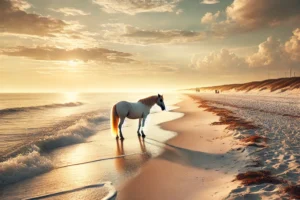Floating in the Dead Sea is a unique experience due to the high salt concentration of the water. The Dead Sea, located between Jordan, Israel, and the West Bank, is one of the saltiest bodies of water in the world, with a salt concentration of about 34%. This high salt concentration makes it very easy for people to float in the water, almost like they are weightless.
In addition to the high salt content, the Dead Sea also has a unique mix of minerals, including magnesium, potassium, and calcium, which are said to have therapeutic benefits for the skin and body. Many people visit the Dead Sea specifically for its purported healing properties, which have been used for thousands of years.
If you ever have the opportunity to float in the Dead Sea, it’s important to keep in mind that the water can be very harsh on your skin, so it’s best to avoid any open wounds or cuts. You should also be careful not to swallow the water, as it can be harmful to ingest. Overall, floating in the Dead Sea can be a once-in-a-lifetime experience that you won’t forget.
Why is the dead sea called the dead sea
The Dead Sea is called so because it has an extremely high salt concentration, which makes it inhospitable for most forms of life, hence the name “dead.” In fact, the salt concentration is so high that it’s nearly impossible for anything to survive in it except for certain types of bacteria and algae.
The water in the Dead Sea is also very dense and heavy, which means that people and objects can easily float on its surface. The high salt content also gives the water a distinctive salty taste and makes it very buoyant, which has led to its use as a spa and therapeutic destination for people seeking relief from various skin and joint ailments.
Check why visit Thailand
The Dead Sea Facts
The Dead Sea is a salt lake bordered by Jordan to the east and Israel and Palestine to the west. It is approximately 50 kilometers long and 15 kilometers wide, and it is the lowest point on Earth, with its surface level being around 430 meters below sea level.
The water in the Dead Sea is extremely salty, with a salinity level of around 34.2%. This makes it almost 10 times saltier than the ocean. Due to its high salt content, no fish or other marine animals can survive in the Dead Sea. However, it is home to some unique microorganisms, such as bacteria and algae, which can survive in the extreme conditions.
The shoreline of the Dead Sea is characterized by white salt deposits and dark mud. The mud is rich in minerals, such as magnesium, potassium, and calcium, which have therapeutic properties and are believed to be beneficial for the skin and overall health.
In recent years, the Dead Sea has been shrinking at an alarming rate, mainly due to human activities such as diversion of its main water sources and excessive pumping of underground water. This has led to environmental problems, such as sinkholes, and has put the tourism industry and the local communities at risk.




